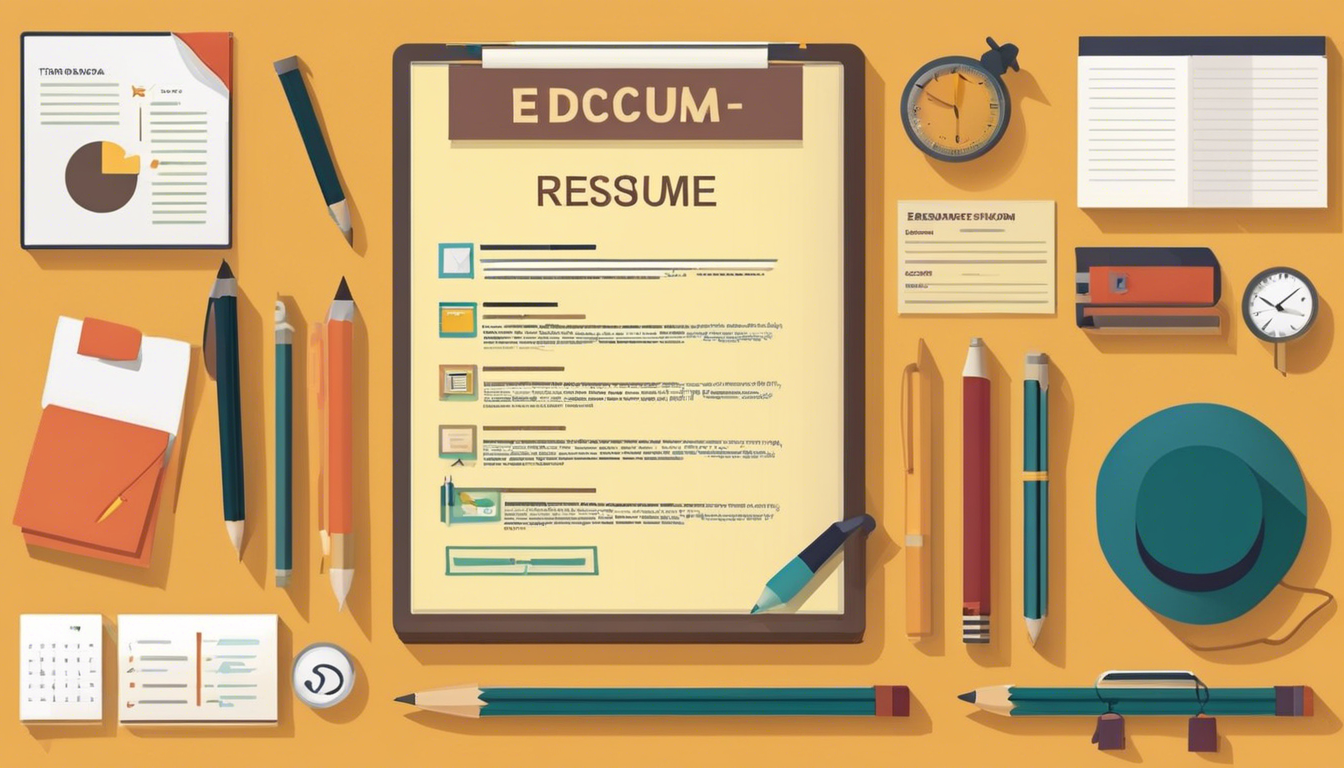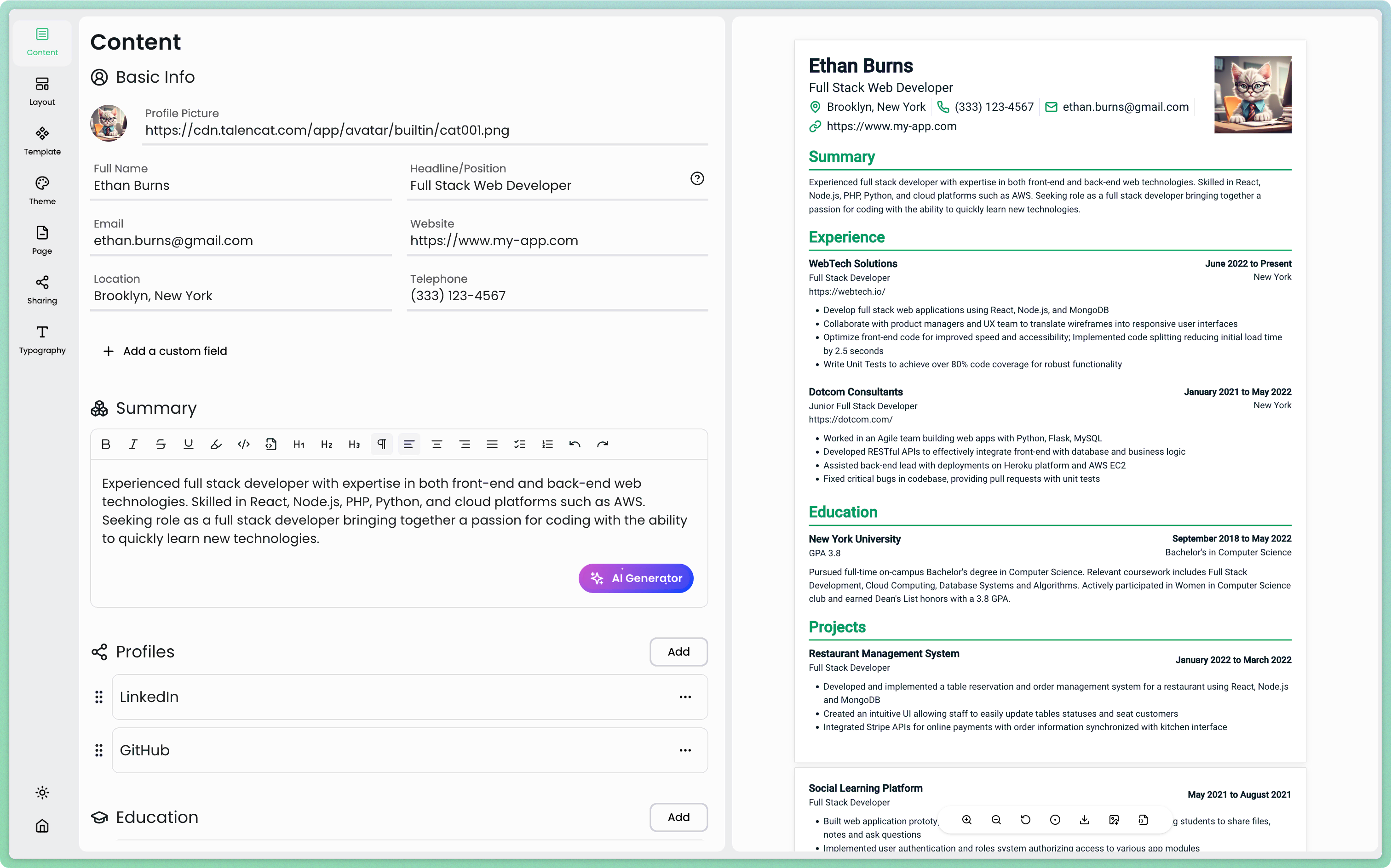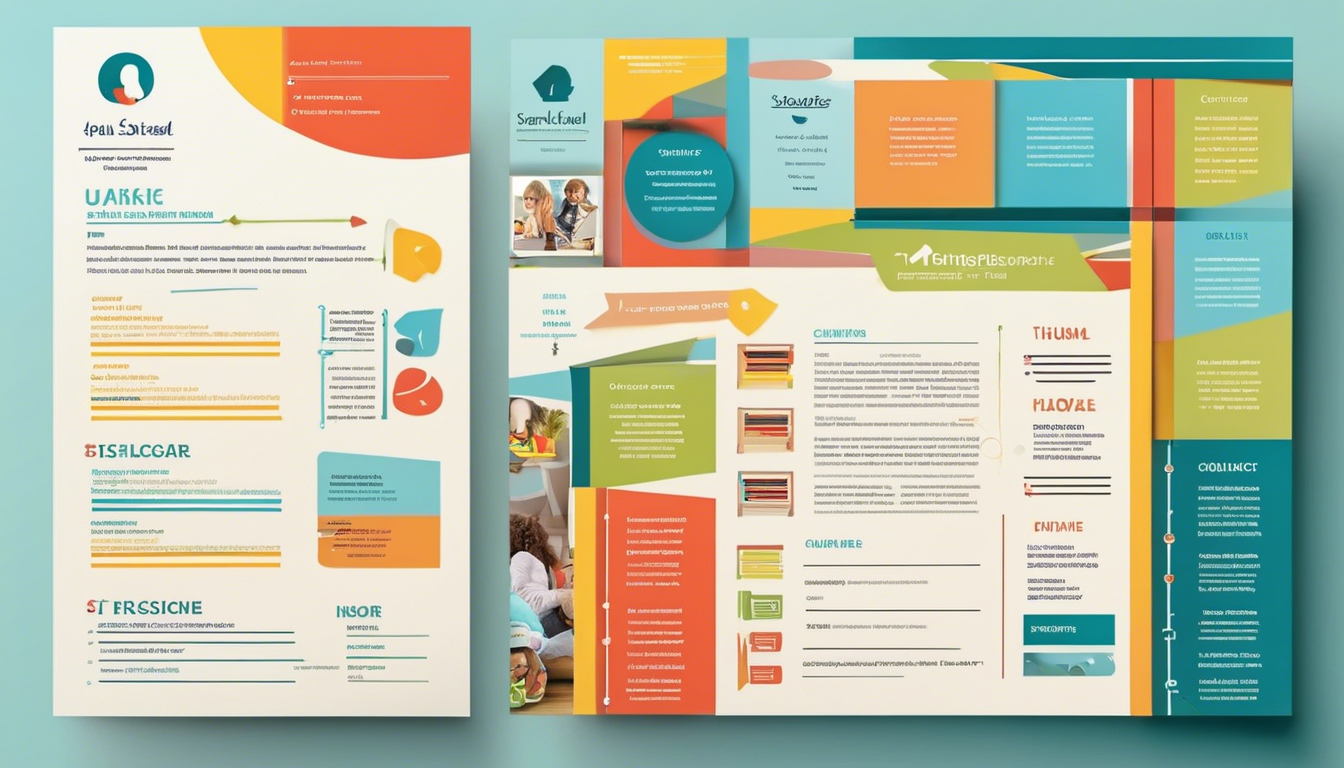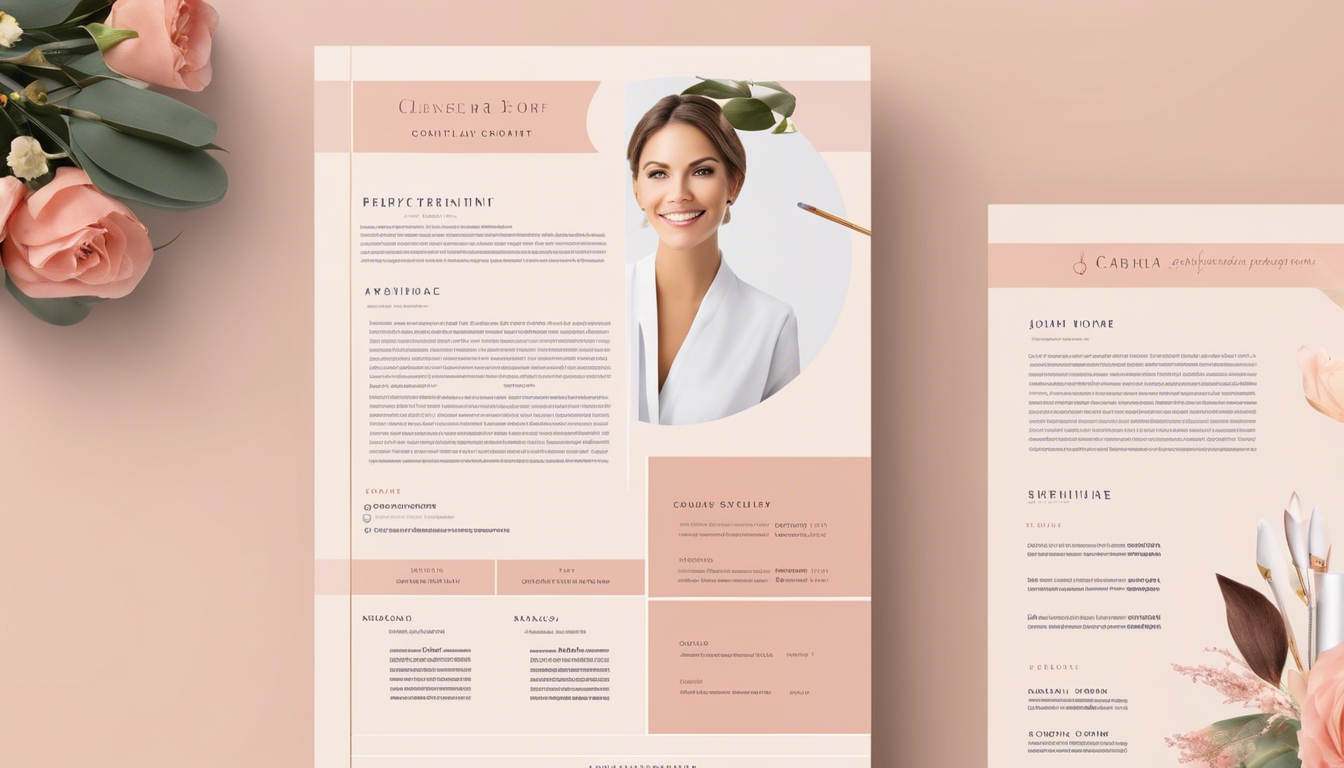One of the most effective ways to make a strong first impression on potential employers is through a well-crafted resume objective. This powerful tool can set the tone for your entire application, highlighting your career goals and showcasing your most relevant skills and experiences. Whether you're just starting your career journey or looking to make a significant change, mastering the art of writing a compelling resume objective can be the key to landing your dream job.
Resume Building Series:







Introduction
Definition of Resume Objective
A resume objective is a concise statement typically found at the top of your resume that outlines your career goals and explains how your skills and experiences align with the position you're applying for. It serves as a brief introduction to your professional profile, giving employers a quick snapshot of what you can bring to their organization.
Importance of a Resume Objective
The importance of a well-written resume objective cannot be overstated. In a world where recruiters and hiring managers often spend mere seconds scanning each resume, your objective can be the hook that captures their attention and encourages them to read further. A strong objective demonstrates your understanding of the role and company, showcases your most relevant qualifications, and clearly communicates your career aspirations. It's your chance to make a powerful first impression and set yourself apart from other candidates.
When to Use a Resume Objective
Understanding when to use a resume objective is crucial for maximizing its impact on your job application. While not always necessary, there are specific situations where including an objective can significantly enhance your resume's effectiveness.
Situations Where a Resume Objective is Beneficial
- Entry-level positions: If you're just starting your career or have recently graduated, an objective can help highlight your enthusiasm and potential, compensating for limited work experience.
- Career changes: When transitioning to a new industry or role, an objective can explain your motivation and how your existing skills transfer to the new field.
- Targeting a specific position: If you're applying for a particular job that aligns perfectly with your career goals, an objective can emphasize this alignment.
- Explaining employment gaps: An objective can provide context for any gaps in your work history, focusing on your current goals and readiness to re-enter the workforce.
- Relocations: If you're moving to a new area, an objective can express your commitment to the relocation and your interest in local opportunities.
Differentiating Between Resume Objectives and Summaries
It's important to understand the difference between a resume objective and a summary statement. While both appear at the top of your resume, they serve different purposes:
- Resume Objective: Focuses on your career goals and what you hope to achieve in the position you're applying for. It's typically shorter and more focused on the future.
- Resume Summary: Provides a brief overview of your professional experience, skills, and achievements. It's generally longer and emphasizes your past accomplishments and current expertise.
Choosing between an objective and a summary depends on your career stage, the amount of relevant experience you have, and the specific requirements of the job you're applying for.
Key Components of a Strong Resume Objective
Crafting a strong resume objective requires careful consideration of several key components. By focusing on these elements, you can create an objective that effectively communicates your value to potential employers and sets you apart from other candidates.
Tailoring Your Objective to the Job
One of the most critical aspects of a strong resume objective is its relevance to the specific job you're applying for. Generic objectives that could apply to any position are unlikely to impress hiring managers. Instead, take the time to:
- Analyze the job description: Carefully read through the job posting, noting key skills, qualifications, and responsibilities.
- Identify company values: Research the company to understand its culture, mission, and goals.
- Align your objective: Use language that reflects the job requirements and company values, showing how your goals and skills match what they're looking for.
Incorporating Relevant Skills and Experience
Your resume objective should highlight your most relevant skills and experiences that directly relate to the position. This might include:
- Technical skills specific to the industry or role
- Soft skills that demonstrate your ability to work effectively in the position
- Relevant achievements or certifications that set you apart
Remember to be specific and quantify your experiences where possible. For example, instead of saying "Experienced in sales," you might say "Achieved 120% of sales targets for three consecutive quarters."
Setting Clear Career Goals
A strong resume objective should clearly communicate your career aspirations and how the position you're applying for fits into your long-term plans. This shows employers that you're not just looking for any job, but are specifically interested in growing with their company. Consider:
- Short-term goals that align with the position's responsibilities
- Long-term career objectives that show your commitment to the field
- How the role can help you achieve these goals
By incorporating these key components, you create a resume objective that not only captures attention but also demonstrates your suitability for the role and your potential for growth within the organization.
Crafting an Effective Resume Objective with TalenCat CV Maker
Writing a compelling resume objective can be challenging, but with the help of an AI resume builder like TalenCat CV Maker, you can create a powerful and tailored objective statement in no time. Here's a step-by-step guide on how to use TalenCat CV Maker to write an impactful resume objective:
Step 1: Log in to TalenCat CV Maker and create a new resume by clicking the "+ Create Resume" button in the top right corner.

Step 2: Name your resume and choose to either start from scratch or use a pre-made example. For this tutorial, we'll select "Create with Example" to get a head start on our resume objective.

Step 3: Once in the resume editor, navigate to the "Professional Summary" or "Objective" section. This is where you'll craft your resume objective.

Step 4: Utilize TalenCat's AI-powered suggestions to generate a tailored objective statement. Click on the AI icon next to the objective field to access this feature.

Step 5: Review and refine the AI-generated objective, ensuring it aligns with your career goals and the job you're applying for. Remember to keep it concise, typically 2-3 sentences long.
Step 6: Once you're satisfied with your resume objective, you can continue editing the rest of your resume or export it as a PDF or image file.
TalenCat CV Maker's intuitive interface and AI-powered suggestions make it easy to craft a compelling resume objective that will catch the attention of potential employers. By following these steps, you can create a professional and tailored resume that highlights your career goals and qualifications effectively.
How to Write an Effective Resume Objective
Writing an effective resume objective is a crucial skill that can significantly impact your job search success. By following a structured approach and tailoring your objective to each application, you can create a compelling statement that resonates with potential employers.
Research the Job Description
Before you start writing your resume objective, it's essential to thoroughly understand the position you're applying for. This involves:
- Carefully reading the job posting: Pay close attention to the required skills, qualifications, and responsibilities listed.
- Identifying key phrases: Look for recurring terms or specific language used to describe the ideal candidate.
- Researching the company: Understand the company's mission, values, and culture to align your objective with their goals.
Identify Key Skills and Qualifications
Based on your research, determine which of your skills and qualifications are most relevant to the position. Consider:
- Technical skills specific to the role
- Soft skills that demonstrate your ability to work effectively in the position
- Relevant achievements or certifications that set you apart
Crafting the Objective Statement
Now that you've gathered the necessary information, it's time to craft your objective statement. Follow these guidelines:
- Start with a strong opening: Begin with a powerful statement that immediately captures attention.
- Highlight your most relevant skills: Focus on 2-3 key skills or qualifications that directly relate to the job.
- Express your career goals: Clearly state how the position aligns with your professional aspirations.
- Show your value: Indicate how your skills and goals can benefit the company.
- Keep it concise: Aim for 1-2 sentences, or about 30-50 words.
Examples of Strong Resume Objectives
To better understand how to apply these principles, let's look at some examples of strong resume objectives for different career stages:
Entry-Level Resume Objectives
- "Recent marketing graduate seeking to leverage strong analytical and creative skills to contribute to XYZ Company's digital marketing initiatives. Eager to apply classroom knowledge and internship experience to drive measurable results in a dynamic, growth-oriented environment."
- "Motivated computer science graduate with a passion for AI and machine learning, seeking an entry-level software developer position at ABC Tech. Aiming to contribute to innovative projects while expanding programming skills in Python and Java."
Mid-Career Resume Objectives
- "Results-driven sales manager with 7+ years of experience in B2B sales, seeking to leverage proven track record of exceeding quotas and building strong client relationships to drive revenue growth as Regional Sales Director at DEF Corporation."
- "Experienced project manager with PMP certification and a history of successfully delivering complex IT projects on time and under budget. Seeking to apply expertise in Agile methodologies and stakeholder management to lead high-impact initiatives at GHI Solutions."
Career Change Resume Objectives
- "Former elementary school teacher transitioning to a career in corporate training, bringing 10 years of instructional experience and strong communication skills. Seeking a Training Specialist role at JKL Learning to develop engaging employee development programs that enhance organizational performance."
- "Accomplished journalist with 8 years of experience in investigative reporting, seeking to leverage research and analytical skills in a new role as a Market Research Analyst at MNO Insights. Eager to apply data-driven storytelling abilities to uncover consumer trends and inform business strategies."

Common Mistakes to Avoid
While crafting your resume objective, it's crucial to be aware of common pitfalls that can weaken your statement and potentially harm your chances of landing an interview. By understanding and avoiding these mistakes, you can ensure your resume objective remains powerful and effective.
Overly Generic Statements
One of the most frequent mistakes job seekers make is using generic, one-size-fits-all objectives that could apply to any job in any industry. For example:
"Seeking a challenging position where I can utilize my skills and experience to contribute to the company's success."
This type of statement fails to provide any specific information about your skills, career goals, or how you can benefit the employer. Instead, focus on crafting a tailored objective that speaks directly to the position and company you're applying to.
Focusing on Personal Goals Instead of Employer Needs
While it's important to express your career aspirations, your resume objective should primarily focus on how you can meet the employer's needs. Avoid statements that solely emphasize what you hope to gain from the position, such as:
"Looking for a role that offers opportunities for professional growth and advancement."
Instead, frame your objectives in terms of how your skills and goals align with the company's needs and how you can contribute to their success.
Using Complex Language or Jargon
In an attempt to sound more professional or knowledgeable, some job seekers overload their objectives with industry jargon or overly complex language. This can make your statement difficult to understand and may turn off potential employers. Keep your language clear, concise, and accessible. For example, instead of:
"Seeking to leverage cross-functional synergies to drive paradigm shifts in organizational efficacy."
Consider a more straightforward approach:
"Aiming to apply my cross-departmental collaboration skills to improve organizational efficiency and drive innovation."
By avoiding these common mistakes, you can create a resume objective that effectively communicates your value to potential employers and increases your chances of securing an interview.
Tips for Crafting a Compelling Resume Objective
Creating a compelling resume objective requires more than just avoiding common mistakes. To truly stand out, you need to employ strategies that make your objective powerful and memorable. Here are some key tips to help you craft an objective that captures attention and showcases your value.
Keep it Concise
In today's fast-paced hiring environment, brevity is crucial. Your resume objective should be:
- No longer than 1-2 sentences
- Approximately 30-50 words
- Clear and to the point
Remember, the objective is meant to be a snapshot of your professional profile, not a detailed explanation. It should entice the reader to continue exploring your resume.
Use Action Words
Incorporating strong action verbs into your objective can make it more dynamic and engaging. Some powerful action words to consider include:
- Achieve
- Develop
- Implement
- Innovate
- Lead
- Optimize
- Streamline
For example: "Seeking to leverage five years of project management experience to streamline operations and drive innovation as a Senior Project Manager at XYZ Company."
Highlight Your Value Proposition
Your resume objective should clearly communicate what sets you apart from other candidates and how you can add value to the organization. Consider:
- Unique skills or experiences that are particularly relevant to the role
- Specific achievements that demonstrate your capabilities
- How your goals align with the company's mission or current projects
For instance: "Results-driven marketing professional with expertise in social media strategy, aiming to increase brand engagement and drive conversions for ABC Brand's upcoming product launch campaigns."
By implementing these tips, you can create a resume objective that not only captures attention but also effectively communicates your unique value to potential employers. Remember to tailor your objective for each application, ensuring it speaks directly to the specific role and company you're targeting.
Alternatives to Resume Objectives
While resume objectives can be powerful tools for certain job seekers, they're not always the best choice for every situation. Depending on your career stage, industry, and the specific requirements of the job you're applying for, you might consider alternative approaches to introduce your professional profile.
Resume Summaries
A resume summary, also known as a professional summary or summary statement, is a popular alternative to the traditional objective. This approach is particularly effective for:
- Mid-career professionals with significant experience
- Job seekers with a diverse skill set that may be difficult to capture in a brief objective
- Individuals applying for roles where their experience closely matches the job requirements
A resume summary typically consists of 3-5 sentences that provide an overview of your most relevant skills, experiences, and achievements. It focuses more on what you've already accomplished rather than what you hope to achieve.
Example of a strong resume summary:
"Results-driven marketing manager with 8+ years of experience in digital marketing and brand development. Proven track record of increasing online engagement by 150% and driving a 25% boost in conversion rates through innovative social media campaigns. Skilled in SEO optimization, content creation, and team leadership. Seeking to leverage expertise to drive growth and brand awareness for a forward-thinking tech company."
Skills Sections
Another alternative or complement to the resume objective is a prominent skills section. This approach can be particularly effective for:
- Technical roles where specific skills are crucial
- Industries that value certifications or specialized knowledge
- Job seekers looking to highlight a diverse skill set
A skills section typically appears near the top of the resume and lists key competencies relevant to the job. This can include both hard and soft skills, as well as any relevant certifications or technical proficiencies.
Example of an effective skills section:
Key Skills:
- Project Management (PMP Certified)
- Agile Methodologies (Scrum Master)
- Stakeholder Communication
- Risk Management
- Budgeting and Resource Allocation
- Microsoft Project, JIRA, Trello
When considering alternatives to the traditional resume objective, it's important to think about what format will best showcase your qualifications and align with the expectations of your industry and target role. Sometimes, a combination of approaches – such as a brief summary followed by a skills section – can be the most effective way to introduce your professional profile.
Conclusion
Recap of Key Points
As we've explored throughout this comprehensive guide, crafting an effective resume objective is a crucial skill in today's competitive job market. Let's recap the key points to remember:
- A well-written resume objective can set you apart from other candidates and capture the attention of potential employers.
- Tailor your objective to each specific job application, focusing on how your skills and goals align with the company's needs.
- Keep your objective concise, typically 1-2 sentences or 30-50 words.
- Use strong action words and highlight your unique value proposition.
- Avoid common mistakes such as being too generic, focusing solely on personal goals, or using overly complex language.
- Consider alternatives like resume summaries or skills sections when appropriate for your career stage or industry.
Encouragement to Personalize Your Resume Objective
Remember, your resume objective is often the first thing a potential employer will read about you. It's your opportunity to make a strong first impression and clearly communicate why you're the ideal candidate for the position. Take the time to craft a compelling objective that reflects your unique skills, experiences, and career aspirations.
Don't be afraid to revise and refine your objective as you progress in your career or as you target different roles. A well-crafted, personalized resume objective can be the key that opens the door to your next great career opportunity.
By applying the strategies and insights shared in this guide, you'll be well-equipped to create resume objectives that not only capture attention but also effectively showcase your professional value. Whether you're just starting your career journey, making a mid-career transition, or aiming for that next big step up the ladder, a strong resume objective can help you stand out in a crowded job market and move closer to achieving your professional goals.



